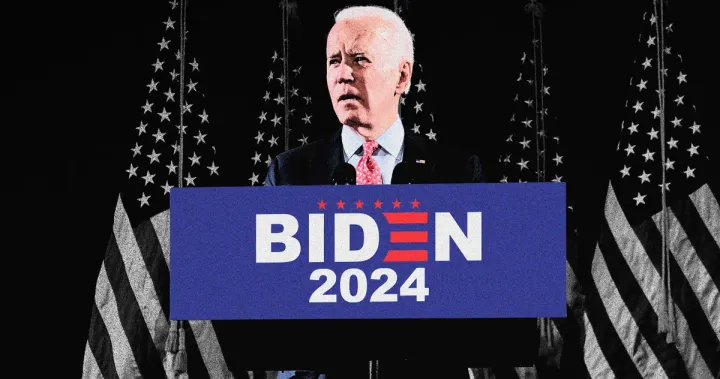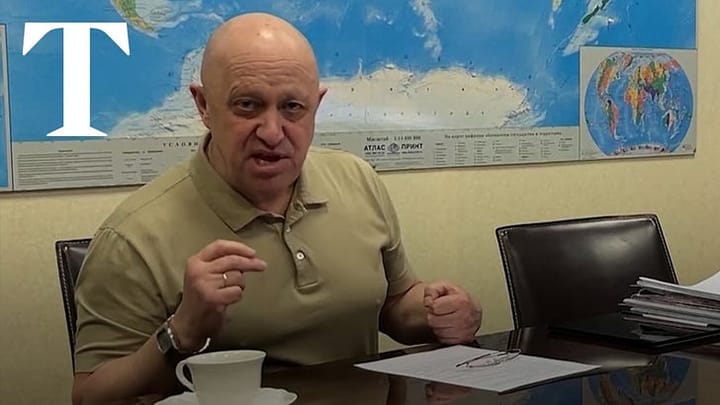End Of All Hope
After a year of war, Russia is getting pretty metal, and not in a good way.
Nothing describes the mood of Russia’s media these days better than a 2000’s laughably bombastic symphonic metal band stomping through memories of their D&D campaign.
Except, maybe, Russian media itself. Take this excerpt from a New Year’s broadcast that was widely, justifiably mocked on Twitter:
“Springtime for Hitler” by way of Lawrence Welk, with a disturbing number of bored military officers milling around and plastic smiles that never break? Happy new year, everyone.
Now, make no mistake. Russian television has been, for decades now, the sort of thing you don’t watch for fun, but use as psychological torture to demolish the minds of your enemies. It’s been banned in Europe and elsewhere this past year not only for being horribly kitschy, but for justifying genocidal war. And yet, it remains a valuable mirror, not so much of what Russians themselves think, but of what the government wants them to think.
Take this video, for example, which received quite a bit of airplay on prime time Russian television shortly after the invasion of Ukraine:
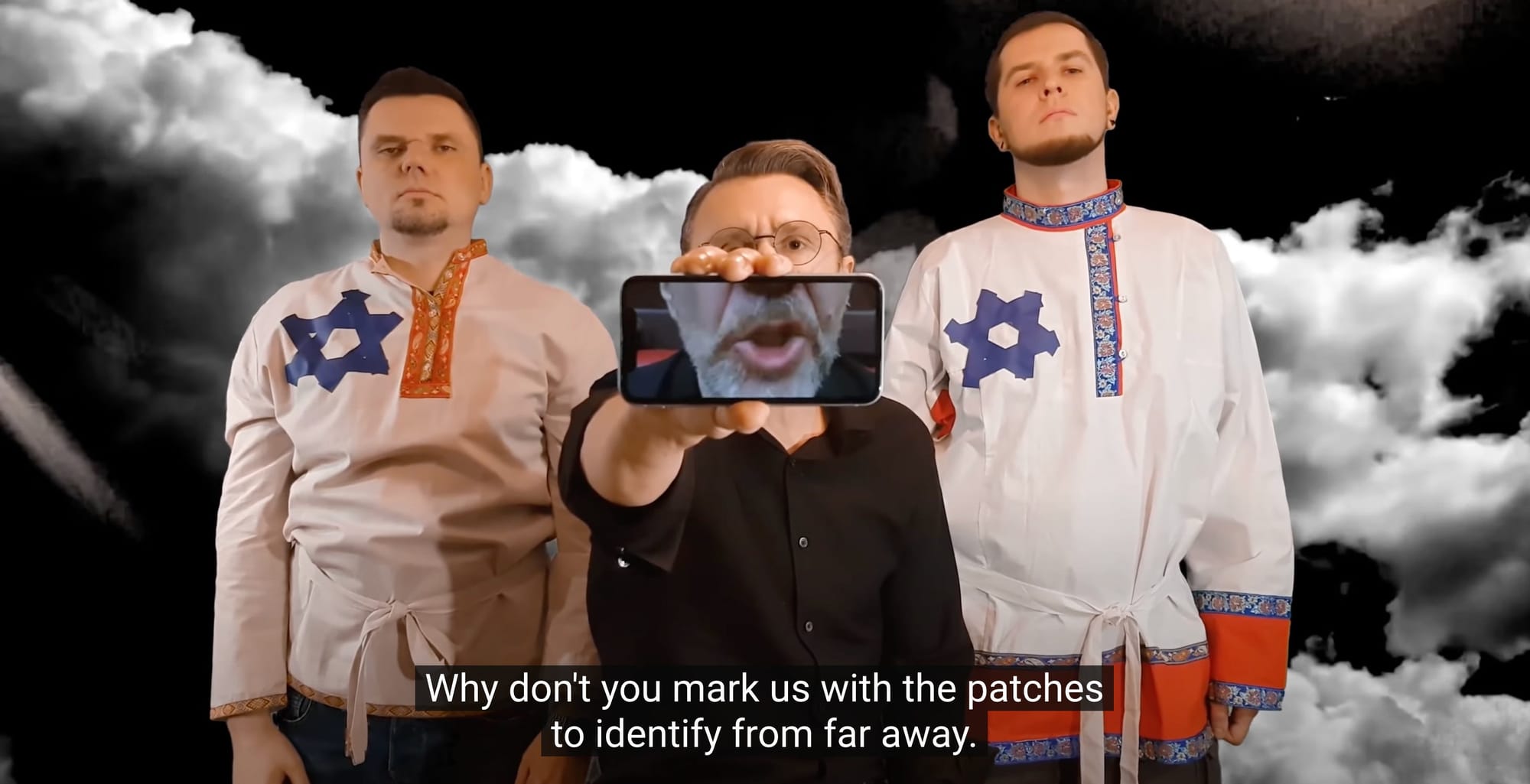
Performed by “Leningrad”, a group led by the head of a TV network, the song, “No Entry: Russians and Dogs” is a typically subtle piece where the lead singer, backed by two band members wearing stereotypical Slavic blouses with stars of David taped on, screams about how Europeans are discriminating against Russians for absolutely no reason at all, just like Nazis and the Holocaust. It ends with the angry shout “Europeans, don’t be silent: Russians are the new Zhids [a racial slur in Russian for Jews]. You want us all to burn in an oven!”
Much like American conservatives, Russian nationalists are not too fond of taking any responsibility for their actions (often threatening nuclear annihilation and complaining that they’re not allowed to shop in Paris any more in the same sentence). But beyond that, it mirrored the state narrative of the time: Russia was fighting the Nazis again, defending the motherland against fascist invaders. The key difference - in 1941 Russia was fighting for its survival within Russia against fascist Germans who were killing millions of Russians and in 2022 Russia was fighting within Ukraine against a democratic resistance and killing tens of thousands of them as part of a land grab - wasn’t pointed out very often.
Yet, that fig leaf of justification wore off as the war wore on. The turning point was the fall of 2022 - with the Ukrainian army going on the offensive and liberating Kherson and large parts of the Donbas, and the ensuing “partial mobilization” causing massive chaos that couldn’t be swept under the rug, the attitude of the state propagandists shifted noticeably. Much less angry spitting about European fascists and their treachery, and much more… fatalism. Nihilism. This is not the sort of thing you expect to see on your nightly news.
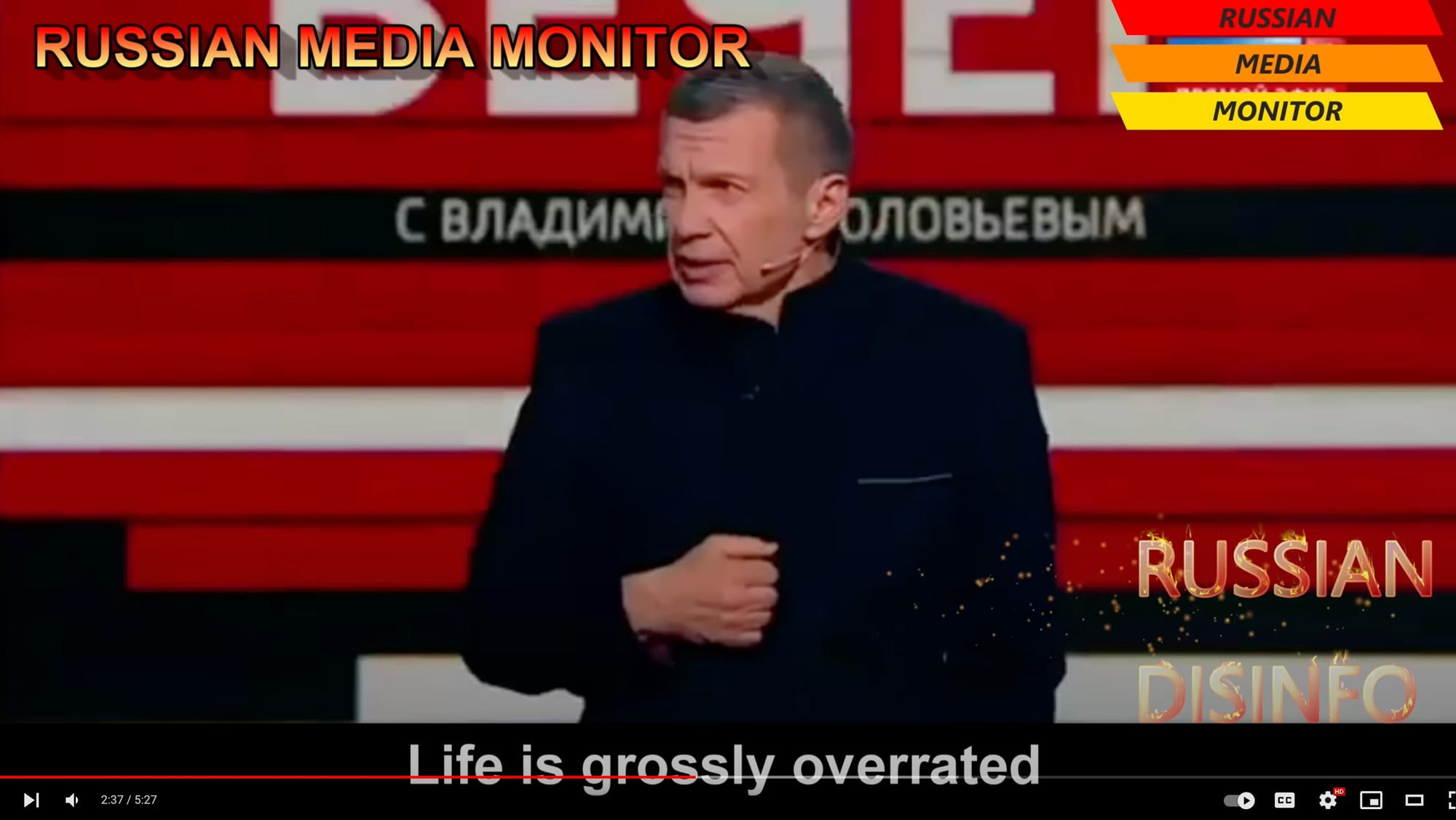
And it’s not a one-off.
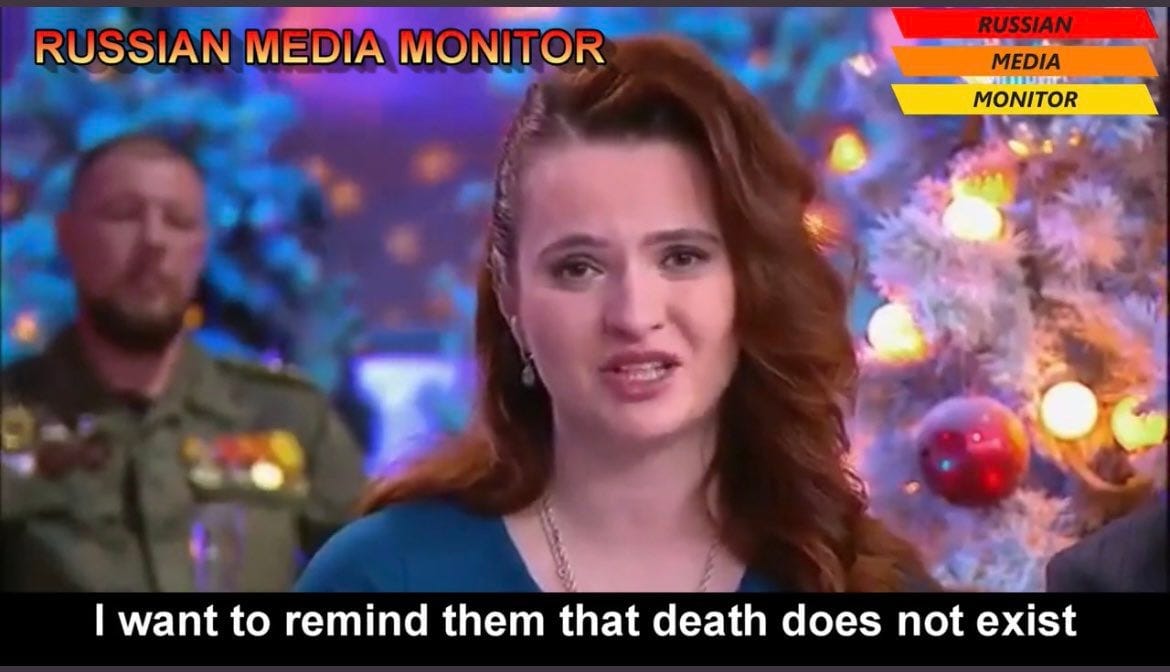
I wish I could say I was exaggerating, but from all accounts it appears that the government of a nuclear armed state is rapidly embracing a Warhammer 40K-style death cult. These examples were all from last week.
Not every message is “you should embrace death”, some, of course, are still “you must break the bones of our enemies”.
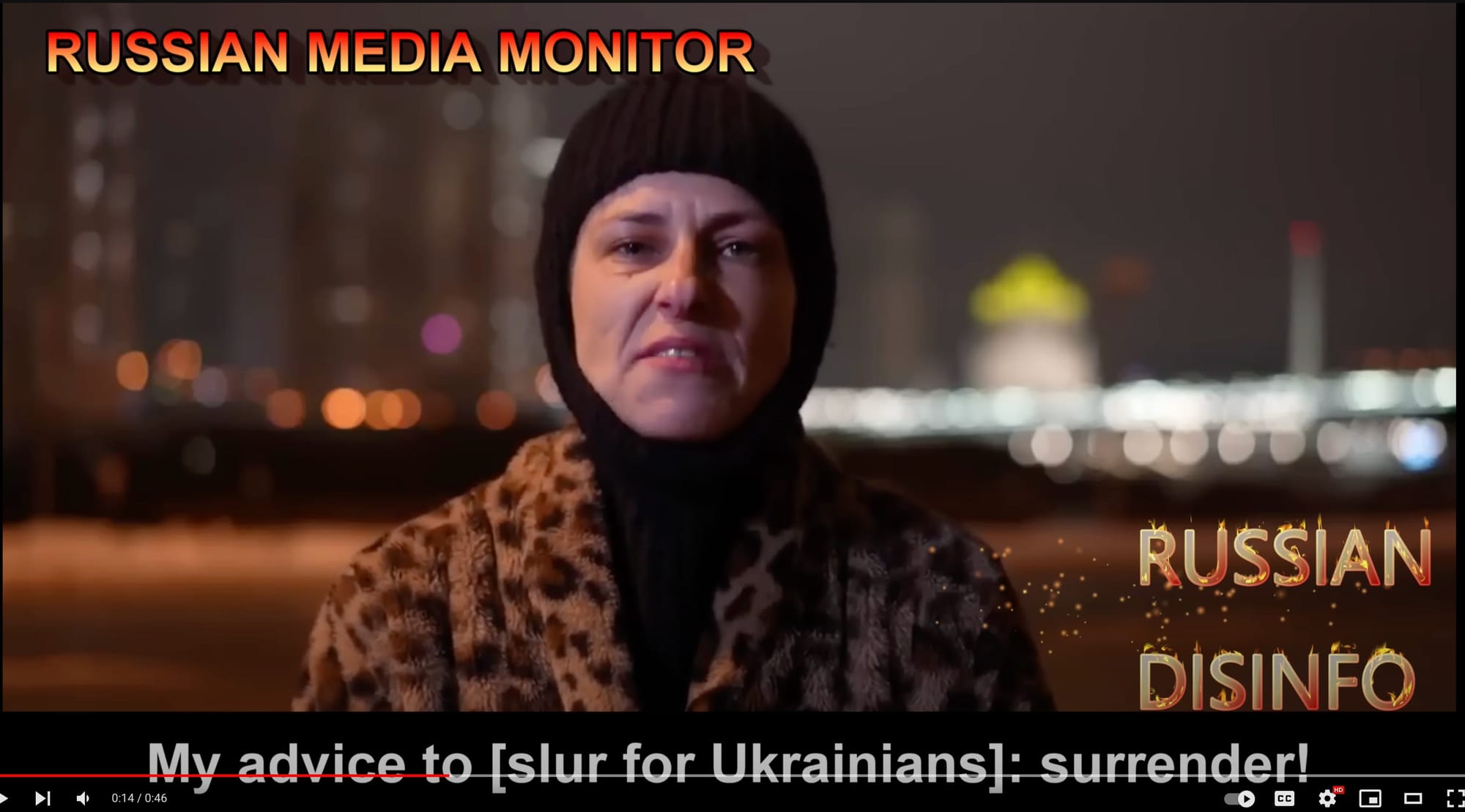
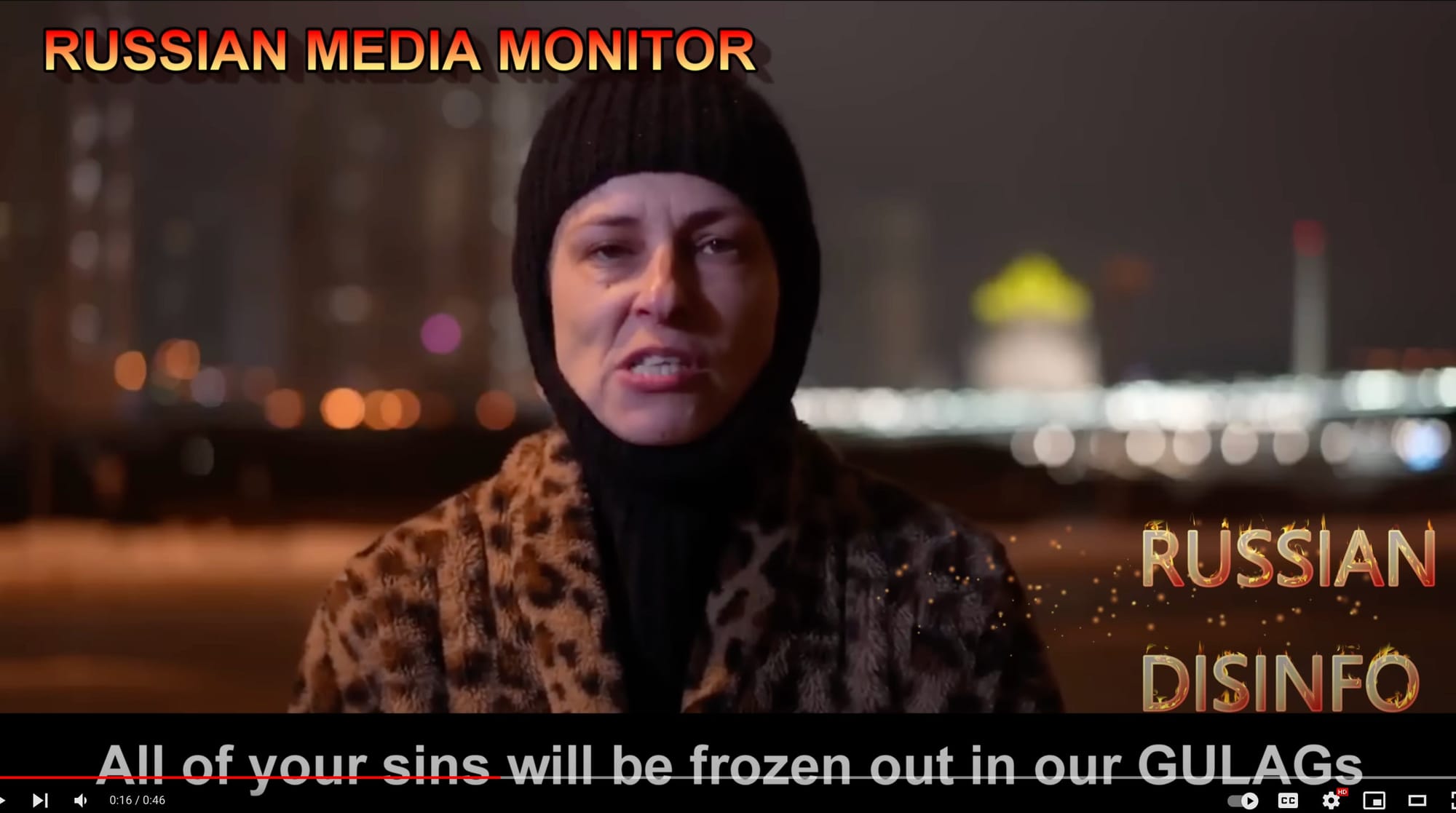
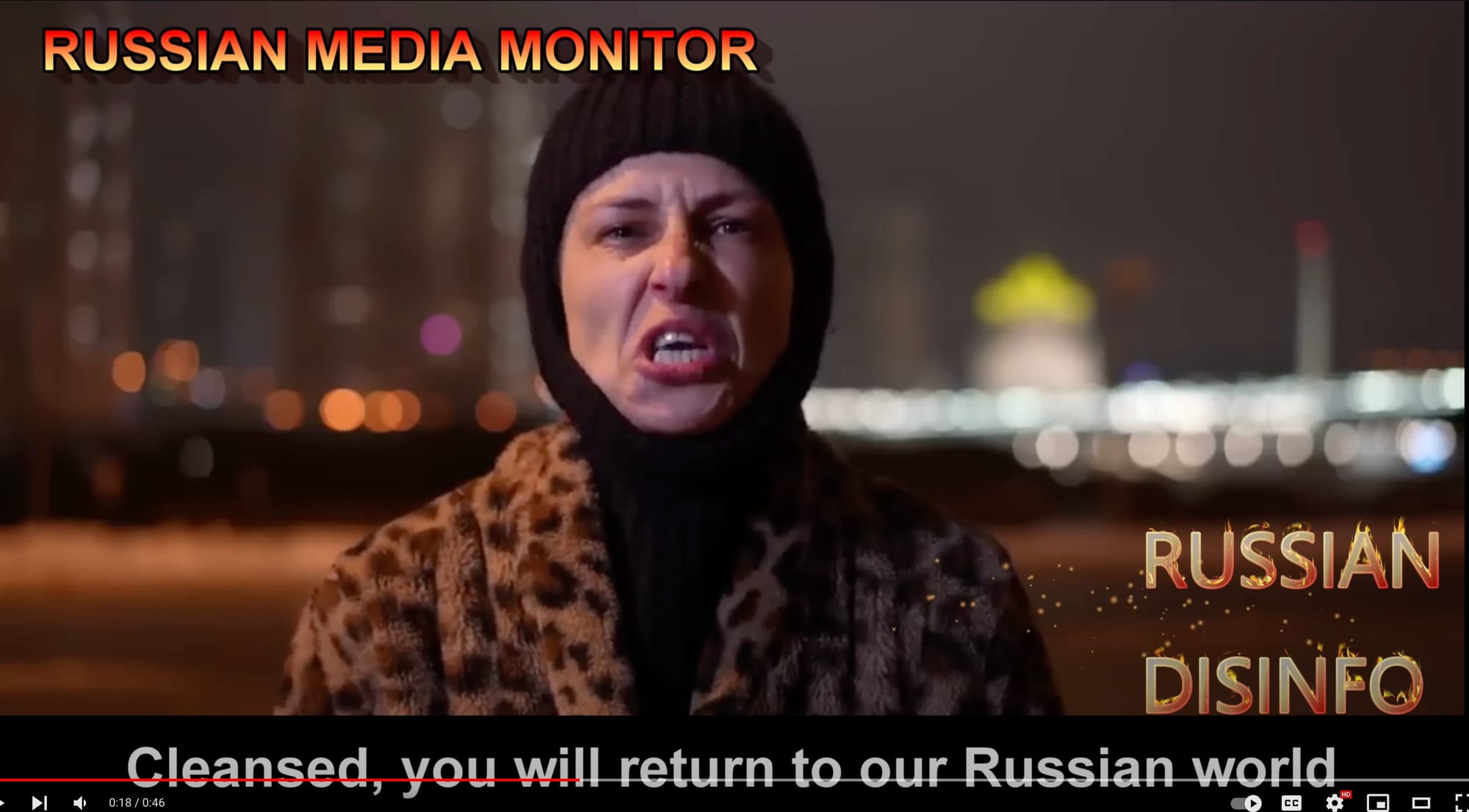
No more any attempt at justifying an invasion through Nazis, or Satanists, or “globalists”, or piously claiming Russians are the real victims. Blood and soil, submit or die.
And yet, that’s not the worst of recent Russian media.
As Russia fires its last stock of missiles at Ukrainian power stations trying to ensure they live through winter in misery and darkness, the goal of the bombing campaign is spelled out in lurid detail by this RT video aimed at Europeans. It needs to be seen to be believed.
Psychological operations professionals have a methodology for analyzing propaganda: “SCAME”, an acronym for Source, Content, Audience, Media, and Effectiveness. Unlike most RT product, the SCAME analysis for this is pretty brutally clear: We, Russia, will make you, our enemies, suffer. And bear in mind, the target audience for this piece, at least overtly, was not Russians. Its message is that comfortable, rich Europeans can be reduced to eating rodents in the cold darkness, just like Ukrainians.
This isn’t a war-winning message. It isn’t inspirational at all. It’s an angry yell of a defeated yet still upright fighter that he can still hurt you.
Or, to quote a really bad metal song from the 2000s:
It is the end of all hope
To lose the child, the faith
To end all the innocence
To be someone like me
Because everything, profoundly, is terrible.
